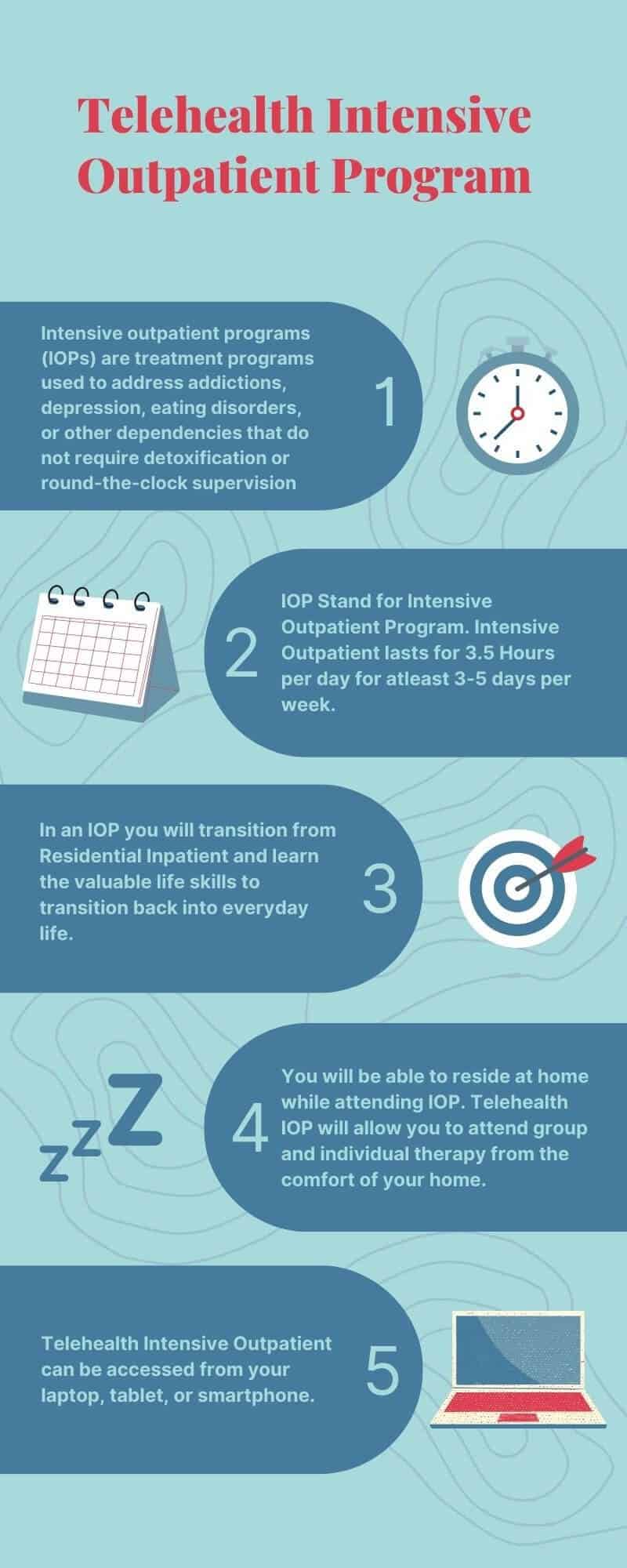Top Reasons to Think About an Intensive Outpatient Program (IOP) for Mental Wellness.
Wiki Article
Navigating the Intricacies of Twin Diagnosis Therapy Within an Extensive Outpatient Program Setting
In the world of psychological wellness and dependency therapy, the crossway of double diagnosis offers a nuanced challenge that demands a thorough and tailored method. By checking out the details of dual diagnosis therapy within this extensive outpatient context, a more clear course arises towards alternative and sustainable recuperation for those grappling with these intertwined obstacles.Double Medical Diagnosis Review

Understanding twin diagnosis is important as it calls for a comprehensive and integrated approach to therapy. By acknowledging the interaction in between compound use and psychological health, doctor can tailor treatments to meet the one-of-a-kind demands of each person. This holistic method not just addresses signs and symptoms however additionally targets hidden factors that add to the twin medical diagnosis.
Furthermore, without treatment dual medical diagnosis can cause a cycle of regression and getting worse psychological health and wellness symptoms. By acknowledging the intricacy of twin diagnosis and providing specific care, healthcare professionals can sustain individuals in accomplishing long-term healing and enhanced mental health.
Tailored Treatment Plans
Identifying the elaborate interaction in between material usage problems and mental health problems, the growth of tailored therapy strategies is paramount in dealing with the complexities of dual medical diagnosis in psychological wellness treatment. Tailored treatment strategies are individualized approaches that think about the special requirements, difficulties, and goals of people encountering double diagnosis. These strategies are made collaboratively by a multidisciplinary group of professionals, including psychoanalysts, psycho therapists, social workers, and dependency experts, to guarantee extensive and incorporated treatment.Tailored treatment strategies commonly include a combination of treatments, medicines, and behavioral treatments that target both the compound use condition and the mental health and wellness condition all at once. These strategies may include cognitive-behavioral treatment, dialectical behavior modification, medication-assisted treatment, private counseling, group treatment, and household therapy, to name a few evidence-based interventions. By tailoring therapy techniques to individual situations, tailored strategies can address the origin of twin diagnosis, advertise lasting recuperation, and enhance total top quality of life for individuals fighting with co-occurring disorders.
Integrated Care Method
An integrated care method in double diagnosis therapy incorporates clinical, mental, and social treatments to address the intricate requirements of individuals with co-occurring material usage problems and psychological health and wellness conditions. This technique identifies that dealing with one element of a twin medical diagnosis without dealing with the other can result in ineffective results. By incorporating clinical treatments such as medicine monitoring learn the facts here now for mental health and wellness conditions with mental therapies like cognitive-behavioral therapy for substance use conditions, individuals receive extensive treatment that targets all aspects of their dual diagnosis.Furthermore, the social element of incorporated care includes addressing ecological aspects that might more helpful hints add to the development or perpetuation important usage and mental health issues. This can consist of family characteristics, real estate instability, or absence of social assistance. By including social interventions like household therapy, professional assistance, and community sources, the treatment ends up being much more all natural and tailored to the person's specific demands. Overall, an integrated care strategy in twin medical diagnosis therapy within an extensive outpatient program setting intends to provide detailed, effective, and individualized like people encountering co-occurring conditions.
Difficulties in IOP Establishing
In the context of double diagnosis therapy within an intensive outpatient program, browsing the intricacies of co-occurring substance usage conditions and psychological health conditions presents considerable challenges. Among the primary obstacles in the IOP setup is the control of care in between mental wellness professionals and drug abuse professionals to ensure a detailed treatment technique. This requires effective interaction, cooperation, and a deep understanding of just how these conditions connect and you can try these out affect each other.
Additionally, dealing with stigma and resistance to treatment within the IOP setting can restrain progress. Some individuals may be reluctant to divulge their dual medical diagnosis or may feel ashamed, preventing their involvement in the therapeutic procedure. Getting over these obstacles necessitates a helpful and non-judgmental setting that promotes trust and openness.

Collaborative Specialist Efforts
Effective twin diagnosis therapy in an extensive outpatient program requires seamless collaboration amongst psychological wellness experts and chemical abuse professionals to make sure a detailed and incorporated approach to care (Intensive Outpatient Program (IOP)). This collaboration is essential to deal with the complicated interaction in between mental health problems and chemical abuse, as both elements require to be dealt with simultaneously for successful outcomes. Mental wellness specialists bring know-how in identifying and treating psychological wellness problems, while drug abuse professionals have specialized understanding in addressing addiction problems. By interacting, these professionals can produce individualized therapy strategies that deal with the distinct needs of each patient, considering both their psychological wellness and drug abuse obstacles.Joint efforts likewise reach regular communication and information sharing among team participants to make certain a cohesive treatment approach. This may involve instance seminars, joint sessions with the client, or shared documentation to track progress and adjust therapy techniques as required. In addition, collaboration may consist of involving other health care experts such as health care doctors or family therapists to offer alternative support to the patient. Inevitably, a united front of professionals collaborating improves the performance of dual diagnosis treatment within an intensive outpatient program.
Final Thought
Finally, reliable twin diagnosis treatment within an extensive outpatient program setup calls for tailored therapy plans and an integrated care strategy. Difficulties might emerge in this setup, but collaborative efforts among professionals can help browse these intricacies. By attending to the distinct demands of people with co-occurring mental health and wellness and compound make use of conditions, IOP programs can supply thorough and all natural like sustain healing and overall health.Report this wiki page